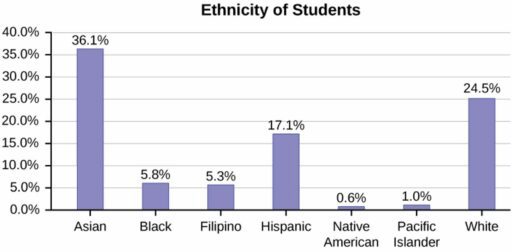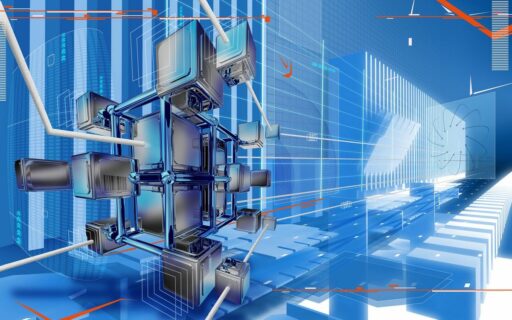Table of Contents
In the rapidly evolving field of big data, engineers are the linchpins of turning vast amounts of data into actionable insights. As the industry grows, so does the demand for skilled professionals who can navigate the complexities of big data technologies. This article delves into the five essential skills that every big data engineer should master to stay competitive and effective in 2024’s technological landscape.
Key Takeaways
- Proficiency in cloud computing platforms like AWS, Azure, or Google Cloud is indispensable for data storage and processing tasks.
- A solid understanding of both relational (e.g., MySQL, PostgreSQL) and NoSQL databases (e.g., MongoDB, Cassandra) is necessary to manage diverse data structures efficiently.
- Familiarity with big data frameworks such as Hadoop, Spark, and Hive is crucial for the analysis and processing of large datasets.
- Knowledge of ETL tools like Apache Nifi and Apache Airflow is essential for automating and managing data pipelines.
- Developing soft skills, including problem-solving, communication, and teamwork, is just as important as technical prowess for a successful career in data engineering.
1. Cloud Computing

In the realm of big data, cloud computing has become an indispensable skill for data engineers. The ability to leverage cloud services for servers, analytics, networking, and security is crucial for scaling and delivering resources on demand.
Business intelligence software enables extraction of insights from big data. Basic tasks include data collection, analysis, situational awareness, decision support, and risk management. As data-driven companies transition from traditional data centers to the cloud, familiarity with cloud providers like AWS, GCP, and Azure is essential.
Mastery of one cloud service can facilitate the transition to others, making it a strategic starting point for those new to the field.
Here’s a quick guide to get started:
- Understand cloud storage and computing basics.
- Learn about data security in the cloud.
- Start with a major cloud provider (AWS, GCP, or Azure).
- Consider courses or certifications in cloud services.
The shift towards cloud computing in businesses, from startups to large corporations, underscores the need for this expertise in current and future data science roles.
2. Databases

Mastering various database systems is a cornerstone for any big data engineer. Relational databases such as MySQL and PostgreSQL operate on structured data, while NoSQL databases like MongoDB and Cassandra are designed for unstructured or semi-structured data. The choice between these databases depends on the specific use case and the nature of the data involved.
- Relational and non-relational databases: Understanding the differences and applications of each is essential.
- ETL systems: Proficient use of ETL tools is necessary to move and transform data effectively.
Big data engineers must not only be adept at managing data within these systems but also at optimizing data retrieval and storage to meet performance demands.
With the rise of NoSQL systems, databases like MongoDB have become increasingly popular due to their flexibility in handling diverse data formats. Practicing with such databases can be done through free installations, allowing engineers to hone their skills in a practical environment.
3. Big Data Frameworks

Mastering big data frameworks is crucial for handling the Three V’s of Big Data: Volume, Velocity, and Variety. These frameworks, such as Apache Hadoop and Apache Spark, provide the infrastructure for distributed processing of large-scale data across clusters of computers. They are designed to scale up from single servers to thousands of machines, each offering local computation and storage.
Here are some of the key frameworks and their primary programming languages:
- Apache Hadoop: Java
- Apache Spark: Scala, Java, Python
- Apache Kafka: Java
Big data engineers must be adept at working with these frameworks to efficiently process and analyze vast amounts of data. Familiarity with the underlying principles and the ability to implement solutions using these technologies are essential.
Understanding these frameworks goes beyond just knowing how to use them; it involves grasping the complex technologies that enable distributed file systems and computing. For instance, Hadoop’s distributed file system lays the groundwork for building robust data processing systems, while Spark’s in-memory processing capabilities allow for rapid data analysis.
4. ETL Tools

Mastering ETL tools is crucial for big data engineers to efficiently manage the flow of data from its source to the destination where it can be analyzed. Tools like Apache Nifi, Talend, and Apache Airflow enable engineers to automate the ETL process, which includes extracting data from various sources, transforming it into a usable format, and loading it into a database system.
The complexity of ETL processes requires a deep understanding of data transformation techniques and the ability to troubleshoot and optimize data pipelines.
Familiarity with these tools is not just about knowing how to use them, but also understanding how to design and manage ETL pipelines that are robust, scalable, and secure. Below is a list of key ETL tools and their primary functions:
- Apache Nifi: Automates data flow between systems.
- Talend: Provides a suite of apps for data integration and management.
- Apache Airflow: Orchestrates complex computational workflows and data processing pipelines.
As data volumes grow and sources diversify, the role of ETL tools becomes increasingly important in ensuring that data is not only collected but also delivered in a form that is ready for insight extraction.
5. Soft Skills

While technical proficiency is a cornerstone for any big data engineer, soft skills are equally essential for career success. The ability to communicate complex data concepts in a clear and concise manner to non-technical stakeholders is a critical skill that bridges the gap between data and decision-making.
Soft skills also encompass teamwork and collaboration, as data engineers often work within cross-functional teams that include data scientists, analysts, and business professionals. The synergy within these teams can significantly enhance the quality and efficiency of data projects.
The increasing importance of soft skills in data engineering cannot be overstated. As the field becomes more intertwined with business operations, the ability to understand and translate business needs into technical solutions becomes paramount.
Problem-solving is another vital soft skill. A data engineer must possess strong analytical abilities to troubleshoot and optimize data pipelines, ensuring that data flows smoothly and efficiently. Continuous learning and networking are also part of the soft skill set, enabling professionals to stay updated with the latest industry trends and technologies.
Here’s a summary of the key soft skills for a big data engineer:
- Problem-Solving Skills
- Communication Skills
- Teamwork and Collaboration
- Business Acumen
- Continuous Learning and Networking
Conclusion
In the rapidly evolving field of big data, mastering a core set of skills is crucial for any data engineer looking to excel. From understanding big data frameworks and databases to honing ETL tools and cloud computing knowledge, these competencies form the foundation of a successful career in data engineering. Additionally, the importance of soft skills such as problem-solving, communication, and teamwork cannot be overstated, as they enable data engineers to effectively collaborate and convey complex technical ideas. As we’ve explored in this article, continuous learning and networking are also key to staying ahead in this dynamic industry. By focusing on these essential skills, aspiring and current data engineers can ensure they are well-equipped to tackle the challenges and opportunities that big data presents.
Frequently Asked Questions
What is the importance of cloud computing for big data engineers?
Cloud computing provides scalable and cost-effective resources for storing and processing large volumes of data. It allows big data engineers to leverage powerful computing infrastructure and a variety of services without the need for significant upfront investment in hardware.
Why do big data engineers need to understand both relational and NoSQL databases?
Big data engineers must choose the appropriate database system based on the specific use case and data requirements. Relational databases are great for structured data and complex queries, while NoSQL databases offer flexibility and scalability for unstructured or semi-structured data.
How do big data frameworks like Hadoop and Spark contribute to data engineering?
Big data frameworks such as Hadoop and Spark provide the tools necessary for efficient data processing and analysis of large datasets. They offer distributed computing capabilities, which are essential for handling big data workloads.
What role do ETL tools play in the work of a big data engineer?
ETL (Extract, Transform, Load) tools are crucial for building and managing data pipelines. They automate the process of extracting data from various sources, transforming it into a usable format, and loading it into a data store for analysis.
Can you explain the significance of soft skills in the field of big data engineering?
Soft skills such as problem-solving, communication, and teamwork are vital for big data engineers. They help in troubleshooting data pipelines, clearly conveying technical concepts to non-technical stakeholders, and collaborating effectively with teams of data scientists, analysts, and business professionals.
Is continuous learning important for big data engineers, and how can they keep up with the evolving technology landscape?
The technology landscape is constantly evolving, and continuous learning is essential for big data engineers to stay current with the latest tools, techniques, and best practices. Networking with peers, attending workshops, and following industry news are some ways to keep up with emerging trends.





